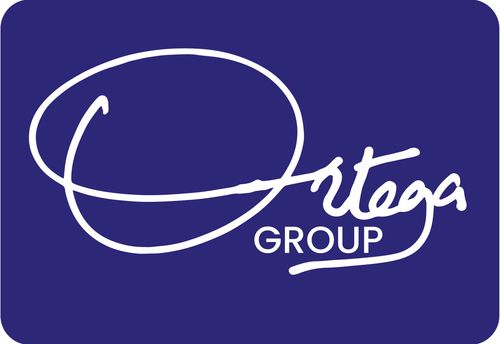The best way to prepare for the future is to be a Creative. There’s no other way. The world is changing very fast. By the time we wake up, 80 percent of the jobs in every industry will be automated, from Banking to Engineering. What will be left of the 20 percent? It will be the creatives. The only thing that won’t be automated or at least, whose value won’t depreciate will be something along the lines of the creative.
Anything that’s not creative; first, society can teach someone else to do it so it can pay you less. Second, if someone else can be taught to do it, then a computer too can be taught to do it. The end result is that it can be automated. And if it can be automated, you can’t be paid the full price of it. The only safe and resilient people for the future are thus going to be the creatives.
When Henry Ford started his assembly line, he never imagined a time where creatives would rule. He expected that he would pay people based on input. And that’s how the 8 to 5pm concept became popular. The world had no idea on how to measure people and pay them accordingly. They figured out, the best and quicker way to do this is to pay them based on how much time they put it. But this as society has now discovered is a very flawed idea. First, there is diminishing returns to people’s inputs. An employee is not as effective at 4pm as they were at 8am when they reported for work. Secondly, we live in an age of leverage, technology has given scale to outputs. In the past, if one man felled one tree in one hour; to fell 7 trees meant getting seven more men or getting that one man to work for another 7 hours. One of the new levers of today is the lever of Technology, with Technology, one man will down more than 7 trees in one hour. That’s leverage.
The future will therefore be hinged on three pillars. One, the future will be creative. And because it is creative, it will be about leverage. And because of leverage, it will be the age of personal brands.
Creatives are paid based on their judgement, not their hard work. In the age of leverage, judgement matters more than hard work. And because of judgement, people get paid based on the output not how long they’ve worked. Because inputs do not matter, outputs do. Take an example of two fellows working in advertising agency, writing ad-copy. One works 8am to 5pm, sometimes staying late into the night. He produces good copy for a marketing campaign, garners a reach of 10,000 views. The other fellow rarely comes in, probably stays home working in his Pyjamas, comes over, works on ad-copy that garners a a viral reach, going all the way into a million views. Who gets paid more? If you paid them based on input, of course, the first fellow would earn a promotion. If you paid based on output, you would pay the Pyjamas fellow more. You would pay him for his judgement, for his output. The Pyjamas fellow is the creative. He gets to rule the future. Because the difference between hard work and judgement is a multiplier effect. It is the difference between good and great. It is the difference between a campaign that goes viral to a campaign that nobody almost notices. A campaign that goes viral results in billions for the shareholders, bonuses for the employees and creates lasting brand salience.
I often wondered; “why do Chief Executives of organisations get paid more?” Because it did not make sense to me. They seemed to do nothing. Then it finally hit me. It is down to judgement. CEOs get paid for their judgement not for their hard work. A wrong decision by a CEO sinks a company, it means losses in billions. One right decision by a CEO implies billions for the shareholders. In fact, CEOs are already operating at the level of creatives.
What do we see happening in the future? The gap between the arts and sciences closes. Because to be a creative means to live at the intersection of the arts and sciences. It took an Engineering Graduate for the Department of Law to get its First Class Degree after more than a decade without one. To be a creative means acquiring deep skills over a wide spectrum of industries and fields and combining these skills in ways no one thought possible, in ways everyone would be willing to pay for, in ways that solve problems. Because of this combination, no one can do what you do, yet, they still require and are willing to pay for what you do.
In future, personal brands will run the world. We are all going to get incorporated in a way. It is no surprise that personal brands today have more reach than corporate brands. One tweet by Oprah has more organic reach than a tweet by Zara, the leading fashion brand. As the future gets more creative, personal brands begin to take over. The best investment for the future is to build one. One builds a brand through authenticity, and through consistency. If you are authentic, no one can copy you. If you are consistent, you are trusted, you are reliable. Brands are broken down to those two qualities.
To arrive at creativity, to arrive at a personal brand is to be intellectually curious. When you look at the men who became great, in the sense of creativity and being personal brands. You could think of a man like Steve Jobs. He was intellectually curious. When you are intellectually curious, it is easy to acquire deep knowledge and deep skills. If you are curious about Blockchain, you would easily acquire knowledge on their operation, their applications in cryptocurrencies and before you know it, you are doing those ten thousand hours of mastery. To the world it seems like hard work, but to you, it’s something that is happening easily.
The future will reward Creatives, it will reward personal brands and it will be a future of leverage. The best way to prepare for the future is to optimize for leverage, for personal branding and for creativity. The future will slowly make us realize that hard work is overrated, judgement is underrated. The only way to be paid what you are worth, is to be a creative. The future belongs to creatives, they will surely rule the world.
Photo: Joweria Nabuuma, CEO of Kiara Events

